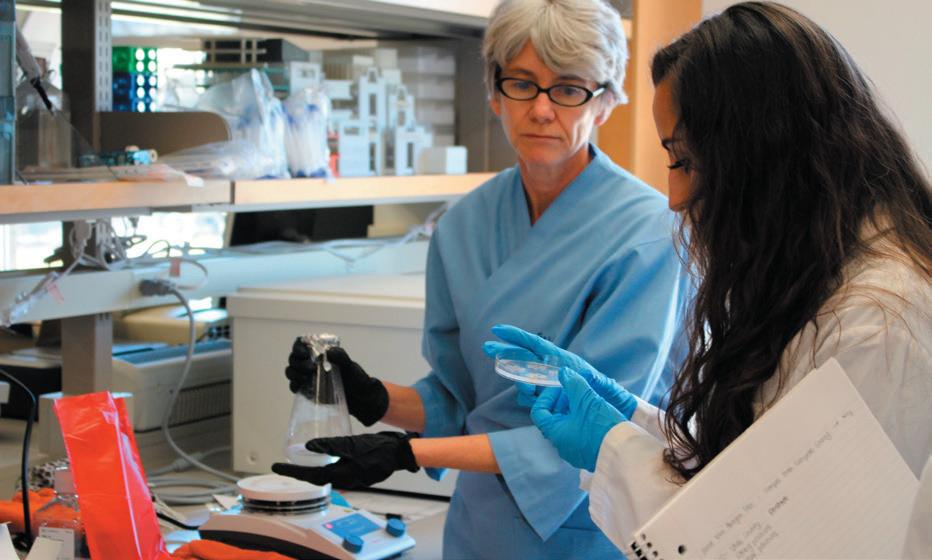
2 minute read
Horses and Heroes
The late Colonel Robert A. Adams (U.S. Army Retired) rode horses while working his family’s ranch well before he flew airplanes in Vietnam or during his long career with Western and Delta airlines. Veterans and people with physical, cognitive, and emotional therapy needs are now able to participate in therapies that include horses at the Robert A. Adams EquineHuman Science Arena.
The new arena, dedicated in August, provides the College of Agriculture and Applied Sciences’ (CASS) growing equine science and management and equine-human science programs a new home at the USU Animal Science Farm. The arena provides muchneeded space to give students hands-on experiences that prepare them to become equine-assisted therapy specialists.
In their careers, graduates will work with horses in partnership with mental, physical, and speech therapists, and educators who work with people who have physical and cognitive disabilities. USU programs serving veterans and military families already have served many people at the farm and on trail rides across the state.
In 2019, USU’s equine-assisted therapies program began work with the U.S. Department of Veterans Affairs in a pilot program to help veterans with substance use disorders and mental health challenges. Since then, the program has been renewed and continues with more than 100 veterans involved this year.

The riderless horse is symbolic of a fallen soldier and was part of the event dedicating the new arena that will serve veterans with equine-therapy and other riding opportunities. Robert A. Adams (right) served his country and the college and leaves an important legacy.

In addition, Dr. Karl Hoopes, DVM and USU Extension equine specialist, launched Ride Utah!, which provides trail rides in locations throughout the state for veterans and military families. Each ride includes a shared meal and time for a mental health professional to moderate discussions that focus on helping people make more successful transitions from the battlefront to the home front.
The National Alliance on Mental Illness reports that 11-20% of veterans experience episodes of post-traumatic stress disorder (PTSD). In the general population, the number is less than 4%. In addition to PTSD, some veterans now battle anxiety and depression, and some are recovering from traumatic brain injuries.
Though many of the veterans in the programs fought in recent conflicts in the Middle East, many who served in earlier conflicts need opportunities to overcome the tolls that war takes.
At the arena’s dedication, USU Equine-Human Science Director Judy Smith said the building is more than a horse arena. For the men, women, and children who participate in programs there, it is a sanctuary and a refuge. The Adams arena was built primarily with donations, gifts from individuals and several local companies that provided many of the building materials at cost.
The new arena’s namesake, Bob Adams, graduated from USU and received his Army ROTC commission in 1968. By 1971, he had flown 766 combat hours in more than 325 missions. He served with distinction then and later in the Utah National Guard and earned many medals and military honors. In addition to his career as an airline pilot, Bob served on the CAAS Alumni Council and as its president. He loved the mountains of Utah and Idaho, and his family describes him as a rancher, horseman, soldier, pilot, commander, friend, gentleman, grandpa, and caretaker. �










